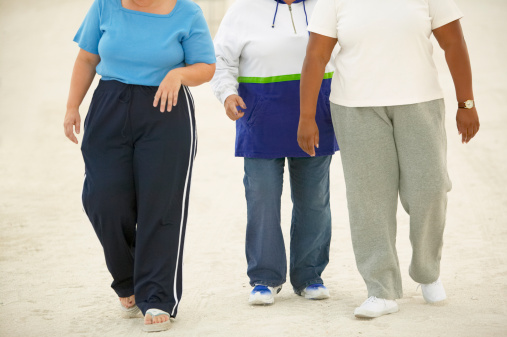
Who remembers when fat shaming was not a very big issue? When I grew up, kids made fun of every difference they could find on their peers. Tragically, this was sanctioned behavior! Adults were highly conscious of their children’s weight and were as into fat-shaming as their children, evidenced in the these vintage fat-shaming exercise videos: Get in Shape Girl! and The Barbie Workout.
In a recent study, published Aug. 25 in the journal Pediatrics, Jian Zhang, an associate professor of epidemiology at Georgia Southern University, suggests parents aren’t tough enough when it comes to judging their children’s body shape.
Parents are less able to realize when their children are overweight or obese than parents just two decades before – even as obesity has more than doubled among children 6-11 years old between 1980 and 2012, this according to the study’s findings.
By contrast, parents interviewed between 1988 and 1994 accurately perceived whether their child was overweight or obese more than half (51 percent) of the time.
“The society as a whole is stuck with a vicious cycle,” senior study author, Zhang, told HealthDay. “Parents incorrectly believe their kids are healthy, they are less likely to take action, and so it increases the likelihood that their kids will become even less healthy.”
Zhang’s concern that these overweight children’s health is in danger stems from the often inaccurate Centers for Disease Control and Prevention’s Body Mass Index (BMI) chart. This index determines a child’s weight status by calculating their height and weight.
But many medical professionals have expressed that the inexpensive and generalized method for gauging health is inaccurate at best.
“The guidelines for determining obesity are not hard and fast rules, they’re a consensus that most doctors agree on,” Dr. Ayloo said. “Right now one of the criteria used is BMI because it’s easily accessible, but it’s not perfect on its own.”
There is no known A-B correlation between obesity and disease as of yet. There are plenty of skinny folks who have type II diabetes. So when a medical professional — such as Amanda Staiano, director of the Pediatric Obesity and Health Behavior Laboratory in Baton Rouge — tells HealthDay that “parents see doctors as an authority figure, and we see success with weight loss interventions and treatments when a pediatrician is involved,” we may want ask what she means by “interventions and treatments.”
If a child is healthy, but she is, according to the BMI scale, overweight, yet all her blood work confirms that she is healthy, what invention or treatment is recommended, aside from fat-shaming the parents and increasing body-anxiety in the child? If a child is healthy, what’s the problem with his or her’s shape?






